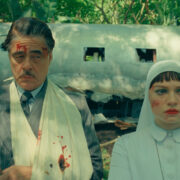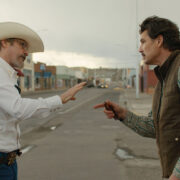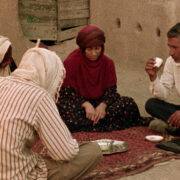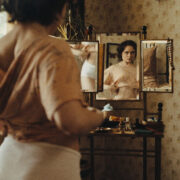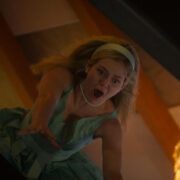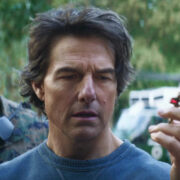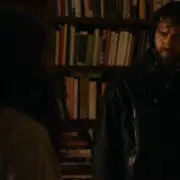London Film Festival 2018 Report One: The Hidden Gems
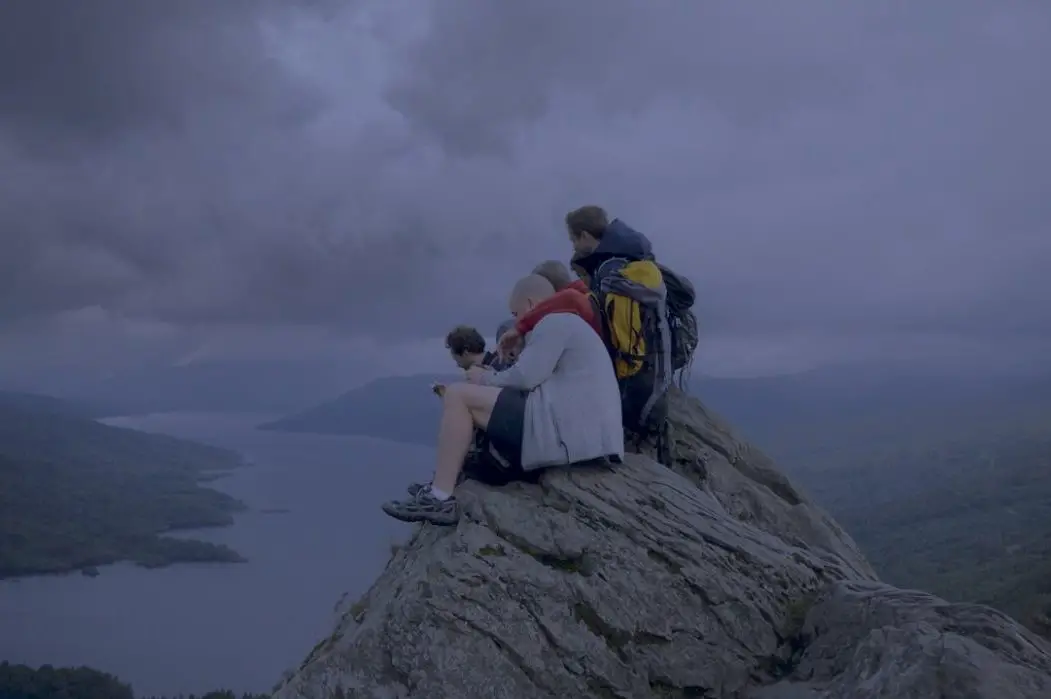
Alistair is a 25 year old writer based in Cambridge.…
Here at Film Inquiry, our writers have been lucky to attend some of the world’s most renowned film festivals, from Cannes to Toronto, offering their takes on the year’s most acclaimed films fresh from their premieres. With London Film Festival kicking off on October 10th, and more of our writers accredited to attend as press than ever before, we decided that our coverage this year will be a little different.
Instead of focusing primarily on the Oscar hopefuls and festival favourites making their British debuts, we aim to find the best hidden gems in the festival’s eclectic line-up, and shine a light on some of the boldest independent filmmaking from across the globe. Yes, I’m sure we’ll be offering our two cents on the likes of Roma and If Beale Street Could Talk when the time comes — but we also want to champion the movies across the breadth of the impeccably curated lineup, from the documentary and first-time filmmaker competitions, to the provocative Cult and Dare strands, and everything in-between.
With the first week of press screenings now over, and our writers swimming under mountains of festival screeners, here are the most interesting discoveries we’ve made so far — long before the festival actually starts in mid-October!
Chained for Life (Dir: Aaron Schimberg)
Alistair Ryder: In 1952, an exploitation movie called Chained for Life, starring the conjoined twins Daisy and Violet Hilton, was released into the midnight movie circuit. The movie aimed for shocking notoriety, just as all the vaudeville “freak shows” that exhibited the sisters when they were children had done. Instead, it just became notorious in the short term as an all-timer of a bad movie, but without the enduring cult appeal of Ed Wood’s similarly awful work in that era.
Just like 2016’s Birth of a Nation, Aaron Schimberg’s Chained for Life shares no narrative similarities with the earlier work with which it shares a name, but the title pointedly evokes it, aiming to overshadow the cinematic sins of the past (in this case, the exploitative use of people with disabilities) in order to make a bolder political point. His film is a jet black satire that at once takes aim at an industry averse to using disabled actors for anything other than “freak show” material, as well as a liberal treatment of people with disabilities — so busy patting themselves on the back for recognising them as human beings, they remain alien to the actual struggles they face.
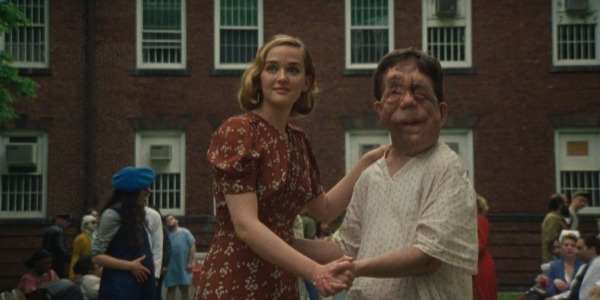
Jess Weixler plays Mabel, an actress who has landed the role in the English language debut of a respected European auteur. The horror film has received some condemnation from the press due to the sensationalist casting of disabled performers as individuals deformed by the work of a mad scientist, although the performers themselves seem to shrug off any controversy. Mabel is playing opposite Rosenthal (Adam Pearson), who is effectively the male lead of the movie. But that doesn’t stop the rest of the production from viewing him as something of a novelty, even refraining from booking him a room in the hotel where they’re staying due to a “lack of disabled access.”
In its best moments, Chained for Life evokes Robert Altman’s The Player, with Schimberg even utilising similar tracking shots to that film’s opening scene (itself a nod to Touch of Evil), eavesdropping on the conversations of non self-aware Hollywood types. There’s also a condemnation of the European arthouse too, as the unnamed director appears to be styled after Werner Herzog, whose more surrealist earlier work like Even Dwarfs Started Small could be criticised under modern eyes for the manners in which it uses its actors.
Unfortunately, the film eventually loses its satirical bite, culminating in a third act that becomes unnecessarily reliant on meta elements which aim to blur the line between the film being shot and the realities of the actors’ relationship. Not only is this inexplicable (Mabel has to lose the German accent she’s been using in the film for this to work, a factor that’s shrugged off), it’s also thematically lazy, shying away from confronting its established thesis on the objectification of disabled people in any coherent or satisfactory way. Chained for Life winds up ending with a shrug, a disservice to the incisive satire that came before, albeit understandable considering the director’s origins in the mumblecore movement. There are some bold, provocative ideas at play here — they’re just in need of a film with far more urgency around them.
Evelyn (Dir: Orlando von Einsiedel)
Charlie Nicholson: Vulnerable spaces are kind of Orlando von Einsiedel’s thing. His short documentary, The White Helmets, took him to Aleppo, while Virunga followed environmental welfare campaigners in the Democratic Republic of the Congo. Still, as he suggests while poring at his late brother’s suicide note, both have been easier than discussing “what happened” fourteen years ago.
Thus, his latest feature-length doc Evelyn looks to remedy this, and in the process confront the stigma surrounding mental health. Named after Einsiedel’s brother (who took his life in 2004), Evelyn tracks the filmmaker and his family as they walk across the UK in his memory, discussing – many of them, for the first time – their last experiences with Eve, and try to process his death.
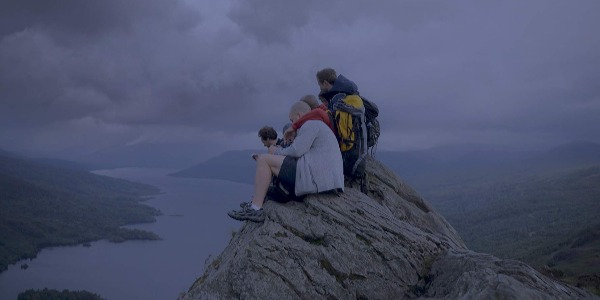
In both look and subject matter, it’s the kind of documentary that might have appeared on the BBC as part of an awareness campaign, evoking both standard participatory doc and personal home video with its straightforward, handheld style.
We begin in profile territory, with goofy home footage of a younger Evelyn teasing Mum or skating at Southbank, interspersed with reflective talking heads in which the Einsiedels recount his later schizophrenia diagnosis and suicidal ideation.
But what ends up being ‘documented’ isn’t so much a rounded portrait of a life taken too soon, as a realisation of the crippling deficit surrounding discussion around mental health. Trudging from heathery Scotland toward London town, the Einsiedels confront (if never finding time to explore in depth) troubling feelings of responsibility and blame, often breaking decade-long silences that — as appears to be confirmed in the tearful moments of relief accompanying best friend Leon and sister Gwendoline’s frank openings up — didn’t need to be kept.
And silence is Evelyn’s main concern. The trip isn’t only a highly personal opportunity for grief, acceptance and community for the family, but serves to evidence how unnervingly common suicide is (the potentially staged nature of their chance meetings with others who’ve also lost loved ones rarely concerns), which inevitably shines a light on the frightful stigma still surrounding discussions on mental health.
What begins as a journey-bound wake becomes a candid observation of the current state of mental health, which for all its conventionality justifies the reason such films should be made in a culture that still struggles to be okay with not being okay.
School’s Out (Dir: Sébastien Marnier)
Andrew Winter: Laurent Lafitte clearly has a penchant for difficult, disturbing films. Last time I saw the French actor, he was a glowering picture of misogyny and madness, stalking Isabelle Huppert in Elle and although he plays a very different character here, School’s Out is, in its own way, every bit as pitiless as Paul Verhoeven’s pitch-black “comedy.” You come away from it slightly shaken, a bit discombobulated — like you’ve seen something you really shouldn’t have.
Lafitte is Pierre, a substitute teacher brought in by a prestigious French college to wrangle a class of intellectually advanced students, whose previous prof we see throw himself out of a window at the beginning of the film. Aloof, convinced of their own superiority and emotionally cold, Pierre initially dismisses the teenagers as entitled rich kids. But as he starts to observe them more closely, particularly outside class, Pierre stumbles headlong into the heart of darkness that holds the group in its thrall.
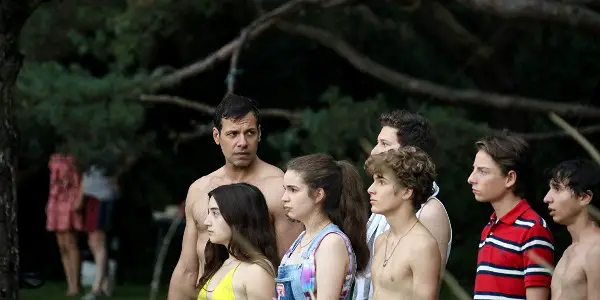
Writer/director Sébastien Marnier’s sophomore feature is about as subtle as a tipsy Gila monster, but the fact its message — “Look what we’re doing to our kids!” — is so blunt and urgent is more a strength than a weakness. These are bright, brilliant young people, who should be out dancing and collecting love bites, but they’ve become desensitised and traumatised by the state of the world they will one day inherit.
There’s shocking footage here of animal slaughter, terrorism, and environmental catastrophe, which seems to have contributed to the group’s descent into nihilism and paranoia. Some, I’m sure, will suggest Marnier’s film is actually a satire about “Generation Z snowflakes” and their need to overdramatise, or merely a metaphor for the horrors of growing up “different,” but I prefer to take School’s Out at face value, over-earnestness and all.
You’ll find familiar flavours in its punch bowl of influences — a generous splash of Village Of The Damned here, a taste of Take Shelter there, perhaps even a soupcon of Nocturama, and Marnier’s film is just as bleak as any of them. The kids — led by the disconcertingly dead-eyed Apolline (Luàna Bajrami) — are supernaturally creepy, at times seeming to move and think as one, as they invade Pierre’s dreams. Romain Carcanade’s off-kilter cinematography and Zombie Zombie’s ominous electronic score only add to the film’s simmering sense of unease.
Unsettling (Dir: Iris Zaki)
Musanna Ahmed: Tension fills the air when leftist filmmaker Iris Zaki arrives in the Jewish settlement of Tekoa to make a film, and there’ll undoubtedly be some tension when the pro-Israel audiences see that she begins Unsettling with a text indicating that “approximately 3 million Palestinians in the West Bank live under Israeli occupation.” It’s a choice of words that’s been contested by Israeli government who declare the West Bank as “disputed territory”.

A few neatly composed shots open the documentary to show the small habitat whirring to life in a bubble, both geographically and socially, a peaceful space for the population of four thousand. What we hear, though, is a man off-screen complaining about on-screen representation of Israel; he hates the potential of a left wing filmmaker making a film there because “leftists are typically anti-Israel and anti-settler.” Her set-up outside a coffee shop is simple: chairs, a table, cameras for shot-reverse-shot, and cameras observing from afar. Thirty days to capture the experience of a lefty moving to a settlement and her interactions with its inhabitants.
The venture is pretty emotionally exhausting for the filmmaker. A couple of weeks in, she tells a close one over a phone call that she doesn’t fit in here, it’s a challenge, but she’ll have a film by the end of it all. And so she does, and it’s fascinating. Not many people are willing to talk to her but those who do bring unique perspectives to the table. Naturally, everybody has been affected by the situation between the two nations in some sort of way so every conversation is insightful in providing the various perspectives of a settler, ranging from apologetic to ultranationalist.
I would have liked if we could have intruded more on her phone calls to catch up on how she felt throughout the days but the occasional check-up with her sole friend in Tekoa, Matanya Freund, is the thread between the interviews, stitching together an endearing but sometimes provocative secondary narrative of the friendship between a resident settler and an outsider. Unsettling is a thought-provoking and necessary social experiment from Iris Zaki, who effectively uses the medium of film to construct a pragmatic portrayal of the Israeli occupation where the agenda only exists in what you see.
Winter Flies (Dir: Olmo Omerzu)
Charlie Nicholson: Furthering his work in Czech coming-of-age, director Olmo Omerzu returns to pitch innocent boyhood and young hijinks against the drizzly backdrop of northern Czech Republic. With threads of The 400 Blows and Stand By Me, Winter Flies lowers the critical attitudes of A Night Too Young and Family Film toward adult irresponsibility, to pursue a prickly, but finally harmless road movie about two runaways and their southward journey in pursuit of spontaneous experience.
We’re introduced to Mára: a 14-year-old runaway who, after being caught driving a shabby Audi across the country, recounts to the Czechoslovak police his thrill-seeking journey south with the sweet, slightly weird Heduš.
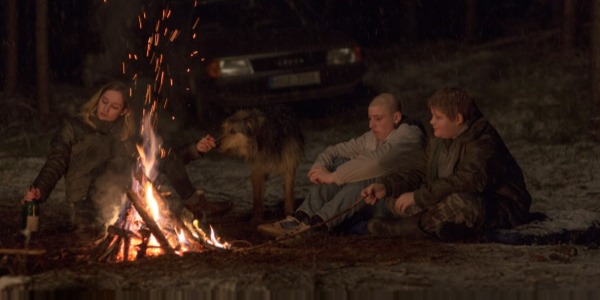
Though the adventure unfolds mostly amid the wintry mist of northern Czech Republic, there is a warmth to Omerzu’s film that almost exclusively comes from the unrestrained freedom the boys enjoy in deserting adult control for the spontaneous thrill of the road. The brotherhood between the lead pair recalls the rowdy solidarity of Stand By Me, with each dynamic enough to keep Petr Pýcha’s straightforward script fun. Before long, the duo picks up hitchhiker Bára (Eliška Křenková), whose initial capriciousness is set in a darker domestic abuse subplot that lends the raucous misadventure some welcome grit.
Just as there is a little bit of Antoine Doinel inwardness to Tomáš Mrvík’s sympathetically wayward Mára, Heduš (Jan František Uher) innocently evokes Hunt For The Wilderpeople’s Julian Dennison, albeit more often dubbed the comedic third wheel to offset the darker problems and relationships Mára seems so keen to escape.
Sympathy is somewhat limited given the lack of situations that invoke genuine peril, but coming-of-age fans will nevertheless find themselves warmly presented with the kinship, campfires and innocent romances familiar to the genre. In one hand it holds the more brooding sections of The Breakfast Club and The 400 Blows; in another the playfulness of The Sandlot and Hunt For The Wilderpeople, while ever so occasionally working in some arthouse sensibilities.
Winter Flies will likely appeal more thematically than narratively (the road movie genre has found more interesting coming-of-age stories in Y Tu Mamá También, American Honey and Lean On Pete, to name a few), but the ghostly Czech highways, frostbitten trees and shadowy Krkonoše Mountains make a refreshing enough change to the endless summers the genre frequents to support what is otherwise a rather predictable arc.
Yours In Sisterhood (Dir: Irene Lusztig)
Chloe Walker: Launched by Gloria Steinem in 1971, Ms. magazine was a phenomenon. Until then, magazines aimed at women had been patronising and shallow; Ms. was the first to treat women like human beings. Over the first decade of its existence, thousands of women from across American sent in letters to the editor, sharing stories about their lives, hopes, and dreams.
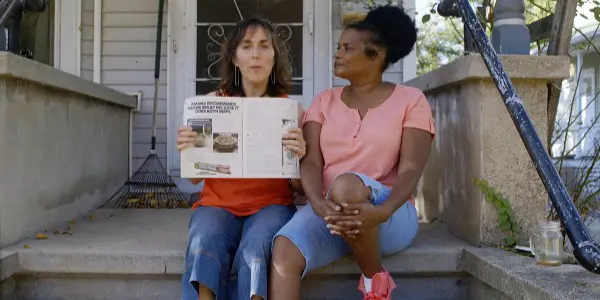
Yours In Sisterhood has a simple premise. Twenty-first century women read the letters written between 1972 and 1980. The letter writers and readers are matched by their home town; the first letter is written by an Iowan woman furious that nowhere will hire her as a police officer, it’s read by an Iowan woman, proudly wearing her police uniform. In some ways at least, we’ve come a long way.
In other ways though, not so much. A woman in Atlanta writes bitterly of the street harassment she faces every day, ‘I can’t stand it, but I can’t stop it’. It sounds all too familiar. Various writers from diverse backgrounds complain they don’t feel included in Ms Magazines’ straight white version of feminism. A woman in an interracial relationship who has read a letter about the welcoming response the KKK received in her town puts it succinctly, ‘I feel like people assume as the years go by it just gets better and better, but that’s not the case at all.’
Irene Lusztig’s documentary is a real exercise in empathy, as she asks the readers of the letters to react to what they have read. Some connect deeply, some disagree vehemently. In every case, a thoughtful conversation is provoked.
Contemplative and moving, Yours In Sisterhood takes us on an exhaustive tour of late twentieth century feminism. We’re left to marvel at both how far we’ve progressed, and how far we have to go.
Stay tuned to Film Inquiry for our next LFF dispatch next week…
Does content like this matter to you?
Become a Member and support film journalism. Unlock access to all of Film Inquiry`s great articles. Join a community of like-minded readers who are passionate about cinema - get access to our private members Network, give back to independent filmmakers, and more.
Alistair is a 25 year old writer based in Cambridge. He has been writing about film since the start of 2014, and in addition to Film Inquiry, regularly contributes to Gay Essential and The Digital Fix, with additional bylines in Film Stories, the BFI and Vague Visages. Because of his work for Film Inquiry, he is a recognised member of GALECA, the Gay & Lesbian Entertainment Critics' Association.



